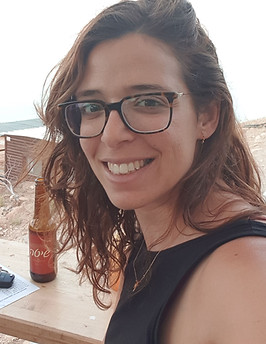Dr Tal Gordon
What is your field of expertise?
I’m a molecular biologist studying regeneration and stem cell in marine invertebrates. My research aims at identifying conserved mechanisms that underlie regeneration by utilizing ascidians, a highly regenerative group of invertebrate chordates.
Tell us briefly on your academic path?
I started my BSc in Biology in 2011 at Tel Aviv University. I continued directly to MSc and PhD at Noa Shenkar’s lab at Tel Aviv university, studying ascidians ecology, development, and regeneration. Following my PhD, I started postdoc research in Omri Wurtzel lab, at Tel Aviv University. The focus of my research shifted from ecology focused research to molecular study. I applied molecular and cellular methods in order to study gene expression during tissue regeneration. Today, I am a postdoctoral fellow at Stanford University studying the role of stem cells in regeneration in marine species with varied regenerative abilities.
What are your professional plans/ aspirations?
Following my postdoc, I hope to apply for a PI position in Israel, studying regeneration and development in marine invertebrates.
What type of research you do (what excites you mostly)?
I had the opportunity to experience different fields of science in my academic path. I started as a zoologist, studying the distribution and diversity of ascidians species in the Gulf of Eilat. During my PhD I established new methods and acquired new skills that enabled me to describe cellular processes involved in tissue regeneration. One of the main questions that guides and motivates my research is whether regeneration capabilities lost during evolution can, at least to some extent, be reacquired.
How was your experience as a postdoc so far?
Challenging. I started my postdoc a year ago and it has been a long acclimation period for me and my family. It took me a while to adapt, personally and professionally. Today, I feel that I adjusted my research plan to line up with the facilities and strength of my current lab and I am starting to enjoy the benefits and potential of my new position.
Can you give an advice to your younger self or a new postdoc?
Change is not always bad.
The postdoc is a period were almost everything constant in your life will change. You will relocate to a new country, find a new house, adapt to a new environment, and finally start your research in a new lab. For me, most of these changes were acceptable. The thing that was most difficult for me to accept was the change I had to make in my research plan. It took me a while to understand that it did not necessarily mean failure. So, my advice is to be open minded to changes, to understand that your research plan, excellent as it might be, might not work out exactly as planned, and it will still be ok.

